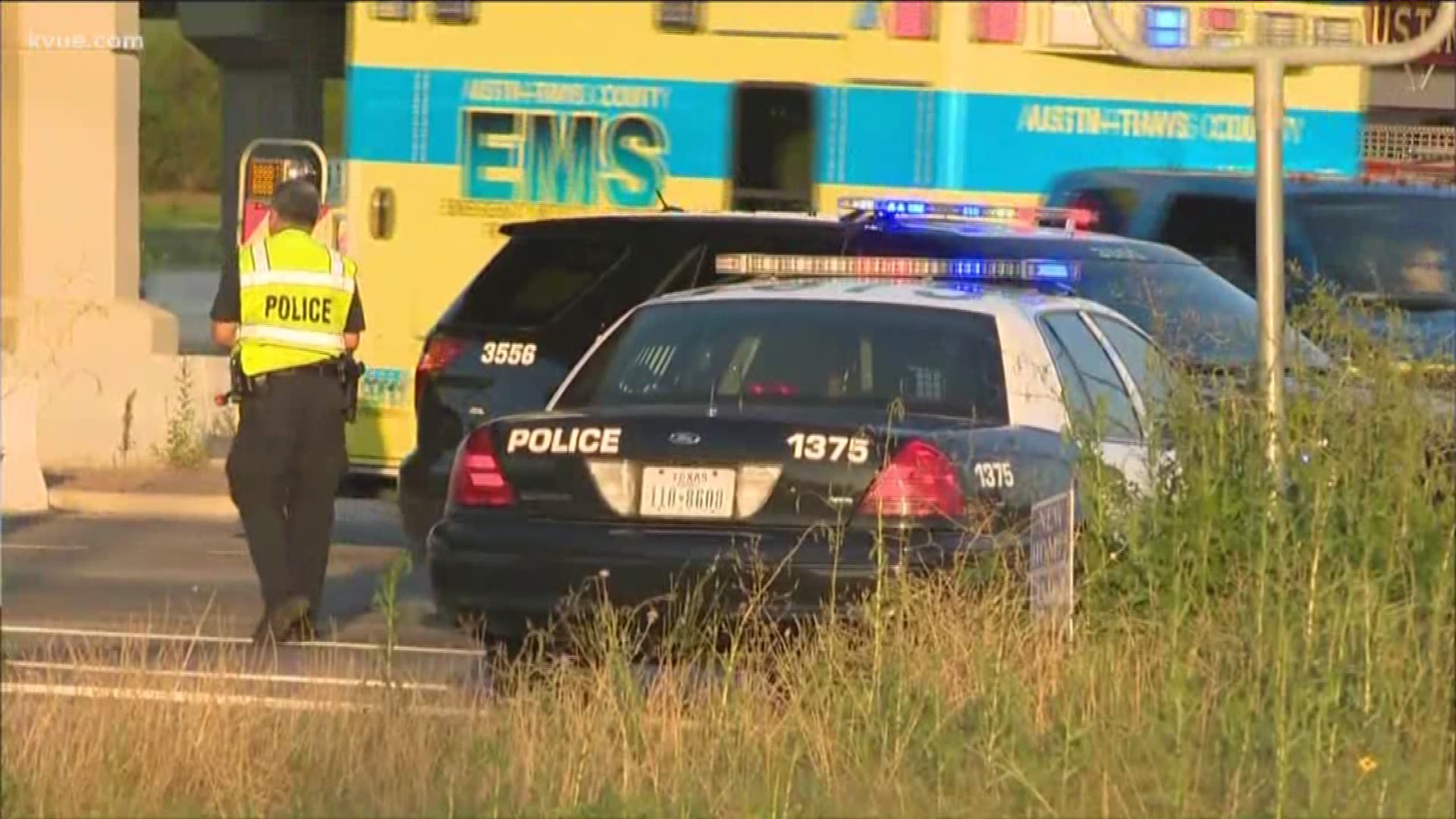AUSTIN, Texas — The Austin City Council on Sept. 10 approved the fiscal year 2019-2020 budget.
The all-funds budget, which includes enterprise departments and the core services provided by the General Fund, amounts to $4.2 billion. The 2019-2020 General Fund Budget is $1.1 billion while the Capital Budget includes $1.2 billion
Citywide expenditures for FY 2019‐20 are 3.8% higher than the prior year.
"It will help us advance on the critical issues that will determine our future," said Austin City Manager Spencer Cronk.
Council began their deliberations on Tuesday from Cronk's proposed budget, which included:
- Historic $62.7 million budget in support of ending homelessness in Austin
- 30 extra police officers and a new Fire/EMS station
- $42 million of planned spending from the 2018 affordable housing bond
- Hotel Occupancy Tax spending of $12.8 million in support of cultural arts and another $11.9 million spent in support of historic preservation.
- $12.8 million for the Parks and Recreation Department’s Aquatics program, including $4.1 million for ongoing maintenance and $1.8 for capital improvements
- Final phase of the Curbside Compost Collection Program rollout with a budget of $4.5 million
- $10.8 million for sidewalk improvements
The council added an extra $4.6 million in new spending, including an additional $550,000 towards tackling homelessness. That was offset by $2.5 million in new property tax revenue resulting from the certified tax roll and elimination of $2.1 million in funding for Austin Fire Department’s proposed Command Tech program.
Additional budget commitments include funding for:
- Additional community health paramedics, expansion of EMCOT, and dispatcher training to improve responses to 9-1-1 mental health calls
- A pay increase for City open-water lifeguards to $16 per hour
- Extra resources for homeless encampment cleanups
- Logistical and support services for Austin residents seeking abortion care
- Outreach to help get a complete count in the 2020 Census
- Relationship violence crisis intervention
- Increased investment in Austin’s workforce training
- Wildfire mitigation
- Earlier staffing for a fire station in Del Valle/Moore’s Crossing while the permanent station is completed
The council also added $90,000 to the reserve fund.
It will officially go into effect on Oct. 1, 2019. To learn more about tax rates in the new budget, click here.
Austin Mayor Steve Adler released the following statement on Sept. 11:
"The budget Council has approved is responsible, innovative and focused on equitable solutions. It embodies the priorities and character of Austin, with investments in arts and music, affordability and mobility, public safety and making chronic homelessness a thing of the past. The budget accomplishes all of this while preserving city service affordability for residents and homeowners.
State leadership has made this kind of budget very difficult to achieve in the future. While tying the hands of cities with revenue caps, the legislature has also opted not to promote or fund statewide solutions for major challenges that affect major cities, including homelessness. We remain hopeful that state leadership may yet consider help for Texas cities as other states have recently done.
In the meantime, our budget will take on sexual assault, mental health services and execute the solutions promised by the 2018 affordable housing bond. It improves the transparency and accountability of community policing and assists arts and music groups in danger of being displaced."
The council heard the 2020 budget proposal for the first time on Aug. 5.
Cronk presented the budget at LifeWorks Sooch Foundation Youth & Family Resource Center.
Homelessness and policing were two areas of focus for the new budget.
The proposal includes a "historic investment" of $62.7 million in response to the homelessness crisis. This is a $17 million increase from the previous fiscal year budget and a "nearly three-fold increase" since the City changed to the 10-1 format for council.
That $62.7 million includes $20.4 million for housing displacement prevention, $23.9 million for crisis mitigation services, and $18.4 million for programs that re-empower families and individuals.
"I'm really excited to see what is an extraordinary investment in homelessness that this budget proposes," Mayor Steve Adler said after the budget presentation. "My hope is is that this kind of bold step will serve as a real rallying moment for businesses and faith communities and nonprofits and neighborhoods to really accelerate their efforts as well."
On Aug. 22, the city council held the first public hearing on the budget, when at least 50 people signed up to testify.
Many people expressed support for the investment in addressing homelessness. Others supported and encouraged more of an investment in public safety.
RELATED:
Several people testified, requesting a salary increase for lifeguards at Barton Springs Pool. Another large group testified asking the City to provide funding for access to abortion care.
The group wants the City to fund $150,000 to provide services like housing and transportation to women who want to get an abortion.
Don Zimmerman, founder of the Travis County Taxpayers Union and former Austin City Council member for District 6, thinks the increased spending on addressing homelessness is a step backwards.
"The increase is gonna make it far, far worse," said Zimmerman. "We’ve had homelessness for thousands of years – there’s nothing new about this. What’s new is the government subsidies increasing to staggering levels which enable people to live indefinitely in homeless encampments."
He also says it could negatively impact taxpayers.
"The homeless problem is getting worse because of the increased subsidies and because of these crazy ordinance changes that show favoritism to people who pay no property taxes at the expense of those who pay too much property tax," said Zimmerman.
But some council members are optimistic that the extra money to help the homelessness is worth it.
"Ending homelessness in this city is a top priority for our City Council," Austin City Council member for District 9, Kathie Tovo, told KVUE. "I'm supportive of a budget that includes a substantial increase for housing and services for individuals experiencing homelessness."
Council member for District 3, Sabino Renteria, agrees.
"If we can help these people get off the street and really give' em some good services where they can be inside of a shelter – where we can work with these people and see what we need to do to get 'em back to productive citizens, that's what our whole goal is," said Renteria.
City manager Spencer Cronk is also creating a Homeless Advisory Council and announced that Lori Pampilo Harris will be the first Homeless Strategy Officer. She's coming from Orlando, Florida, where she served as senior advisor on homelessness and social services to Orlando Mayor Buddy Dyer.
Prior to Harris's appointment with the City of Orlando, she spent nearly 14 years with Habitat for Humanity International in various leadership capacities.
RELATED:
In addition to the homelessness investment, the city is looking to add 30 officers to the Austin police force. They also want to add two more victim services counselors, bringing the total number to 32, as well as an additional $1 million for processing DNA evidence, including sexual assault kits.
"I think this continued investment in public safety will allow us again to take the steps that we need to, to keep our community as safe as possible. We simply no longer live in a society where police departments can protect their communities from all harms as we all saw so tragically this past weekend," Police Chief Brian Manley said after the budget presentation.
Last year, the City spent $5.7 million to bring in 33 new police officers.
"This year our mission is to build on our resources while at the same time bracing the City's budget against the future impacts of the state's decision to lower the cap on local property tax revenue growth," said Cronk.
Doing these things would afford us time to seek new revenue sources and "to have the difficult conversations as a community about where services can be reduced or possibly cut," he added.
"Although the daunting challenges posed by the revenue cap are real, we can mitigate much of the damage through careful financial management and by remaining laser-focused on our highest community priorities while continuing to create further operational efficiencies," he said.
Cronk said the initiatives were intended to develop "a long-term financial sustainability in the era of the 3.5% cap."
A public hearing on the budget is scheduled for Aug. 22 and 28. The final budget is expected to be adopted on Sept. 10.
PEOPLE ARE ALSO READING:


